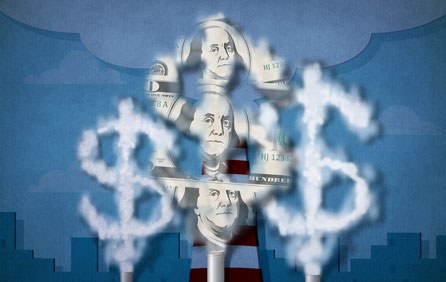A Carbon Tax Is Not More Efficient
< < Go Back
Many economists believe that a carbon tax is the most efficient way to reduce greenhouse gases, but such an argument is incorrect, says Benjamin Zycher, a resident scholar at the American Enterprise Institute.
Even assuming that the Intergovernmental Panel on Climate Change’s consistently wrong record on climate predictions are actually correct, the amount of warming that the United States and the industrialized world could prevent is miniscule. Even reducing gases by 100 percent, the United States would only be able to avert a warming of 0.173 degrees Celsius by 2100.
As such, a carbon tax, Zycher says, would actually have no impact on temperatures over the next 100 years. It makes no sense to call a policy that results in no measurable impact “efficient.”
Those who support a carbon tax see it as more efficient than a ban or a consumption standard.
– But the cost of a carbon tax would ultimately be borne by consumers in the form of higher-priced goods and services.
– Voters, however, would have a hard time measuring that economic cost, and electoral pressures and political competition would not be as effective in constraining the size of the tax.
– The long run effect of such a policy would be a carbon tax that is too high, and that is definitely not efficient.
Is there any reason to think that such a policy would be better than “command and control” policies, such as bans or performance standards? When a consumer’s favorite light bulbs are no longer available, he is at least likely to see the cost of the policy that took that light bulb away.
More From NCPA:




